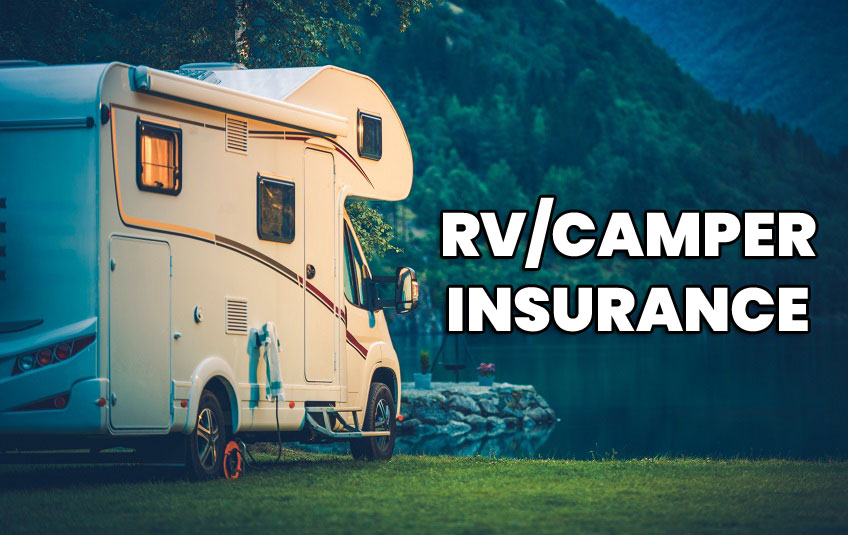
RV/camper insurance comes to your aid if an accident occurs while you’re out traveling the countryside, just like any other vehicle, but it also protects the RV/camper as your personal property. Covered vehicles include motor homes, fifth wheels, motor coaches, tent/pop-up trailers, camper vans, and toy haulers. Whether you are a weekend warrior or live on the road, there is an insurance policy that can work for your needs. Here are a few things you may not know about RV/camper insurance.
Comprehensive insurance doesn’t always mean comprehensive: RV/camper insurance policies vary greatly, so you want to be sure you know exactly what the policy covers. Some policies only cover the RV/camper and not your personal belongings inside, others will cover all that. You probably want a policy that will at least offer roof protection, awning replacement, pest protection, specific equipment protection (such as lighting or after-market upgrades), and window/glass replacement.
There are different policies for full-time and part-time campers: Part-time policies are for those who just use their RV/camper on weekends, holidays, or sporadic times throughout the year. They can often be covered under a standard RV/camper policy. However, if you’re living in the RV/camper or are using it the majority of the year, you’ll probably need a specialty policy that is designed for people who live on the road. These policies provide a more comprehensive coverage, and it considers the fact that your RV/camper is your primary residence. Full-time coverage is more expensive, but it provides the necessary coverage for you to be fully protected while enjoying your time on the road.
Taking a safety course may provide a discount: Many insurance companies will offer a discount if drivers take a safety course and pass it—sometimes saving people up to 10%! Taking a safety course is also a great way to make sure you understand how to operate a huge RV or tow a large fifth wheel, so you can be stress-free while touring the country. Talk with an agent to see if this is something that you can take advantage of.
Some policies offer off-season storage coverage: Many Utahns need to store their RV for the winter, and some insurance policies will offer a reduction or discount during the months you’re not going to be using it. Some policies may even cover the storage costs while your RV/camper is in a secure storage facility, while others may only cover it if it’s on your personal property.
Other vehicles or toys you’re towing need a separate policy: If you bring along watercraft or a vehicle with your RV/camper, you probably will need a separate policy to cover it. Most policies won’t cover additional vehicles that you’re towing along for the ride. Before you head out on your adventure, contact your agent to make sure everything you’re taking is covered or that you at least know what your liabilities are.
With any insurance policy, make sure you read the fine print, and have an agent explain the coverage details clearly. Contact Four Seasons Insurance to get the right policy for your needs.